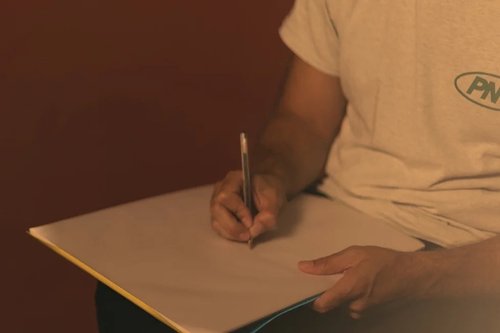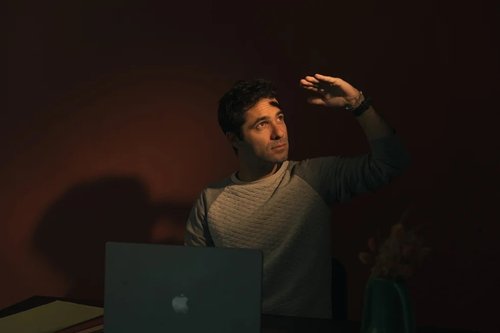Beyond the surface: challenging discrimination in job interviews
Apr 18, 2023
5 mins


Freelance writer, reporter
A job candidate participating in an interview is already navigating a high-pressure situation, striving to showcase their skills, experience, and personality in the best possible light. Adding discrimination into the mix only exacerbates the challenges they face. Unfortunately, many individuals, particularly those from minority communities, often confront harsh judgment, harmful stereotypes, or unconscious bias from interviewers during the hiring process. This not only makes it more difficult for them to secure employment but also perpetuates inequality in the workplace. In this article, we will explore various forms of discrimination that candidates may encounter during job interviews, share real-life experiences of those who have faced bias, and discuss strategies for promoting a more inclusive and fair hiring process.
The two faces of discrimination in job interviews
“There are two different types of discrimination factors that might come up during job interviews,” says Linnea Bywall, Head of People at Stockholm-based Alva Labs. “On one side, there are more systematic aspects. These are factors out of the candidates’ control—like age, gender, ethnicity, and race—which studies have shown can impact who gets the job.” While a potential employer is not allowed to ask you specific questions about these factors, they could still discriminate against you because of them. However it’s difficult to track exactly how many job candidates have experienced discrimination mainly due to non-reported cases.
There are also “more subtle and subjective” discriminatory aspects that could be at play during interviews, according to Bywall. “For instance, people tend to favor candidates that are similar to themselves; this can include looks but also more subtle things like interests, background, and experience,” she says. “These discrimination grounds are harder to detect and technically not illegal, but that doesn’t make them any less problematic.” She also shares that, unfortunately, how good-looking a person is might affect a their chances at getting a job too. Ever wondered what you should wear to a job interview? You’re right to plan your outfit strategically, as Bywall shares that the color of the clothes you choose can also have an impact on the recruiter’s impression of you. “Did you know that black clothes tend to make us look more intelligent, while colors like orange, pink, and yellow do the opposite?” she explains.
Coping with intrusive questions during interviews
It can be incredibly stressful to cope in a workplace setting when factors like your sexuality or gender identity are being perceived outwardly by others. A transgender woman named Zoey, who opted to conceal her full identity for this article, spent months applying for roles in Baltimore’s marketing industry last year. It was her first time doing so using her female-identifying name and She/Her pronouns in online forms.
When Zoey was given the chance to participate in some video interviews for open roles, she faced two instances of interviewers straightforwardly discriminating against her. First, both seemed visibly surprised at her appearance, asking her to reiterate her name and experience. Both interviewers seemed awkward, Zoey says, and subtly hinted that they wanted her to divulge information that alluded to the fact that she was trans (with questions like “So, you say your name is Zoey?”). But Zoey, frustrated, was hoping for an inclusive, welcoming experience, and wanted to interview for jobs based on her experience and skills. She didn’t want to discuss her gender or sexual identity with hiring managers, and found that the way they circled around the topic was intrusive. One of the mentioned interviewers even asked her the question: “Are you sure you’re applying here as woman?”
Founder of social impact and DEI consultancy Revel Impact Nate Shalev—who recently spoke to us about navigating inclusive language at work—is no stranger to this type of judgment in a workplace setting. In fact, Shalev faced one specific instance of discrimination at work that sparked their decision to leave their full-time job and start their own company.
“I was the only trans person within this organization and was working with somebody who was an older, cis, white man and he was super aggressive in the way he spoke to me,” Shalev says. “There was a miscommunication during a meeting, and he snapped at me in a really misogynistic, transphobic way. It wasn’t the way he was speaking to the men on the team—the folks he deemed were his equals. This had happened a number of times, and I was being misgendered all the time. It just became clear that I wasn’t being respected as an employee. So, when that specific instance of being spoken down to in a meeting occurred, I thought to myself, ‘I don’t ever want to experience this again, and I don’t ever want anyone else to experience it either.’”
An experience of ageism during the hiring process
Age discrimination is also something that could be at play in job interviews. One anonymous individual from Austin, Texas spoke with us to detail his experience facing ageism during the interview process. He is an older white man in his early 50s, who has been in the tech industry for more than 20 years. It should be noted that his hair at this time was entirely white. After this man was laid off from a long-term full-time job, he started to apply for tech roles at other places. He began getting interviews thanks to his experience and skillset.
But the interviews didn’t go too well. He would receive comments from younger hiring managers—most of them were younger—like “you remind me of my dad!,” and other subtle but purposeful jabs at his age. He was given the generic feedback that he would be a “poor culture fit” more than once. After a few weeks of dealing with ageist comments like this in interviews, he begrudgingly dyed his hair—and started immediately progressing to further rounds of interviews at companies he was interested in.
This wasn’t an isolated incident; employers in the tech industry have become notorious for discriminating based on age, apparently assuming older people won’t understand modern elements of the field. Another theory is they can hire college graduates for cheap, rather than taking on experienced professionals who would require more pay.
Combatting discrimination in job interviews
There are things that both job candidates and hiring managers can do to make the interviewing process more inclusive, instead of an opportunity for discrimination. “We need to remember that we are all subjective,” Bywall says when asked how a hiring manager in this day and age could ever bring discrimination into an interview. “We view the world through our lens, impacted by who we are, our experiences, our background and our upbringing. As a result, we all have our own preconceptions, which can shine through in conversations or interviews, whether we want them to or not.”
So what can job candidates themselves do to sidestep discrimination at an interview? Bywall suggests that early on in the application process, candidates should look into what a prospective company’s hiring process looks like:“It’s never a good idea to enter a hiring process without doing your research.” They should also be aware of what criteria they will be evaluated on, in order to best prepare. “The least a company can do is be transparent with how candidates are to be assessed,” Bywall says. However, the biggest problem she notes is that most people are not always aware of their prejudice. “A lot of discrimination is done subconsciously. But keep in mind that discrimination in hiring is illegal. Read up on your rights!”
Photo: Welcome to the Jungle
Follow Welcome to the Jungle on Facebook, LinkedIn, and Instagram, and subscribe to our newsletter to get our latest articles every day!

More inspiration: Prepare for a job interview

Hybrid work goals: How to nail the negotiation in your next job interview
Want a hybrid work setup? Learn how to research, negotiate, and showcase the benefits of flexibility during your next job interview.
Dec 19, 2024

The secret to interview success? That annoying colleague
Got a story about a difficult coworker? Good! That office drama might just be your ticket to acing your next interview.
Dec 16, 2024

Is flexibility the key to “having it all” as a parent?
Balancing a career and parenthood can be challenging, but with the right approach, it’s possible to achieve both.
Oct 08, 2024

Slacker vs. control freak: What’s your interview style?
We’ve all been there: whether you're overly anxious or effortlessly cool—what best describes you?
Sep 24, 2024

Overcoming neurotypical norms during the job hunt
Neurodiverse individuals bring valuable innovation and should be more included in the workplace. How can we embrace their unique talents?
Sep 23, 2024
The newsletter that does the job
Want to keep up with the latest articles? Twice a week you can receive stories, jobs, and tips in your inbox.

Looking for your next job?
Over 200,000 people have found a job with Welcome to the Jungle.
Explore jobs